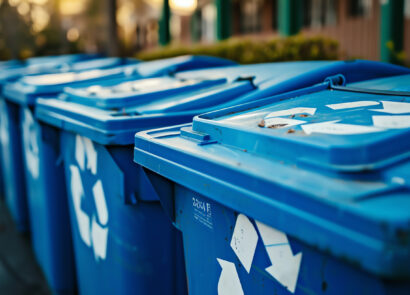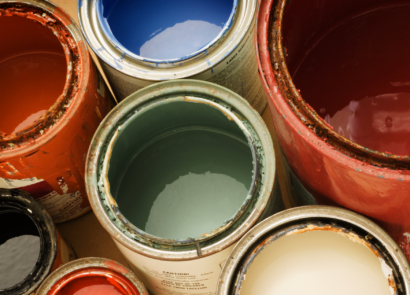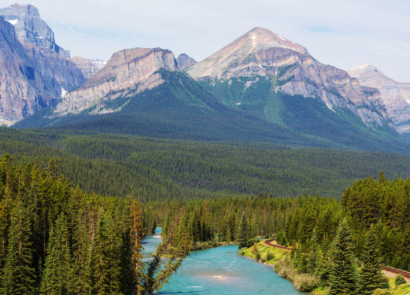Safeguarding the Environment, One Product at a Time
Summer may be coming to a close now, but as the days felt warmer and the sun shined brighter, beckoning us outside, it’s no secret that the summer often lead us outdoors. However, many outdoor (summer) activities required the use of various household (hazardous waste) products. From camping fuel and paint thinners to barbeque propane tanks and tar and bug remover, these items play a significant role in both our lives, and our summer plans. However, once their purpose has been served, making sure they are properly disposed of is crucial to protect our environment and ensure the safety of our communities. In this article, we will explore the importance of responsibly recycling or disposing of your household hazardous waste products, and also, provide essential information for recycling hazardous waste during, and after, the summer season.
To begin with, what exactly is Household Hazardous Waste? Household Hazardous Waste (or Household Special Products) include a number of products that contain chemicals that can harm the environment, and/or pose risks to human health if not managed properly. When improperly disposed of, these substances can contaminate soil and waterways, harm wildlife, and even impact the air we breathe. As responsible individuals, it is our duty to ensure that such waste is recycled or disposed of in a manner that minimizes its environmental impact.
Common Hazardous Products During Summer
These products are frequently purchased and/or used during the summer months.
Camping Fuel:
After a memorable camping trip, you may have leftover camping fuel, including propane canisters, liquid fuel containers, or leftover gasoline. Never throw these items in the regular trash or dump them outside. Look for local recycling centres or special collection events that accept camping fuel canisters. Many recycling facilities can safely handle these containers and ensure that they are properly disposed of or refilled for future use.
Paint Thinners:
Summer often brings about DIY projects, home renovations, and (re)painting projects. While paint thinners are useful to help clean brushes and equipment, they can be hazardous if not disposed of correctly. Instead of pouring them down the drain, seek a local recycling drop off centre where they can safely dispose of the hazardous materials. These facilities have the expertise to properly dispose of these paint thinners, preventing any adverse effects on the natural environment.
Barbeque Propane Tanks:
Backyard barbeques are a staple of the summer—but don’t forget about properly disposing of your propane tanks once they’re empty. These tanks must never be discarded with regular waste, as they can explode and cause severe damage and/or injury to you, or those who help gather and sort our waste. Many of our recycling centres offer propane tank recycling programs, and recycling these tanks ensures that they can be safely refilled and/or safely repurposed.
Tar and Bug Remover:
Road trips and long drives are essential to the summer experience. However, the long drives expose our vehicles to tar and bugs that can be challenging to remove. Specialized cleaning products can help, but their chemicals make them hazardous waste. Always be sure to store these products safely (away from children and pets), and research local hazardous waste collection options for proper disposal.
Tips for Safe Handling and Storage of Household Hazardous Waste products
These tips help with the safety of using household hazardous waste products, as well as responsibly disposing of them.
Read Labels and Follow Instructions:
Always read and follow the instructions provided on the product labels. The instructions will often include safety precautions for usage and disposal.
Store in Original Containers:
Store hazardous products in their original containers whenever possible. This helps prevent accidental mixing of chemicals and ensures that the product’s identity is clear for disposal purposes. Please note that in order to recycle your household hazardous waste products, they will need to be in the original containers, sealed, and with visible original product labels.
Keep Products in a Safe Location:
Store hazardous products in a secure place, away from children, pets, and direct sunlight. Ensure that all containers are tightly sealed to prevent leaks and spills.
Minimize Usage:
Whenever possible, try to minimize the purchase and use of household hazardous products. To minimize environmental impact, borrow a half full propane tank from a friend who doesn’t need it, opt for safer alternatives, or create DIY eco-friendly options, depending on what your needs require.
Summer brings joy, warmth, and adventure back into our lives. Some of these adventures may take us on a camping trip hundreds of kilometers away, to our own backyards for a big family barbeque, or finally allow us the time to take care of home renovation projects. However, as individuals, we must prioritize safeguarding the environment and protecting our communities (including our wildlife friends). By understanding the importance of proper household hazardous waste disposal and following some of the tips offered above, we can ensure that these hazardous and dangerous materials can be disposed of properly.
For a full list of accepted products by province, visit the following links:
For BC: https://www.productcare.org/products/hhw/british-columbia/
For Saskatchewan: https://www.productcare.org/products/hhw/saskatchewan/
For Manitoba: https://www.productcare.org/products/hhw/manitoba/
For Ontario: https://www.productcare.org/products/hhw/ontario/
And to find your closest collection centre, visit our locator here: https://www.productcare.org/recycling-locator/



